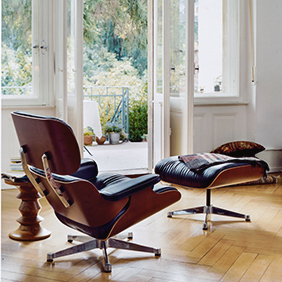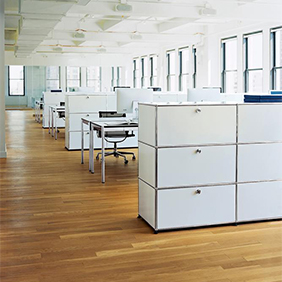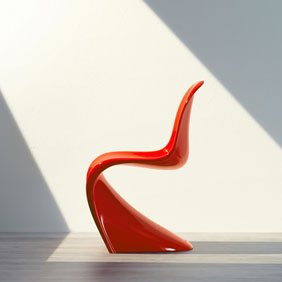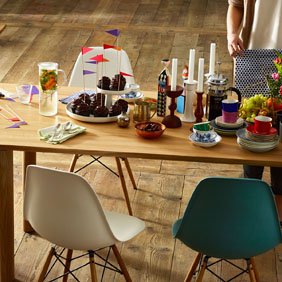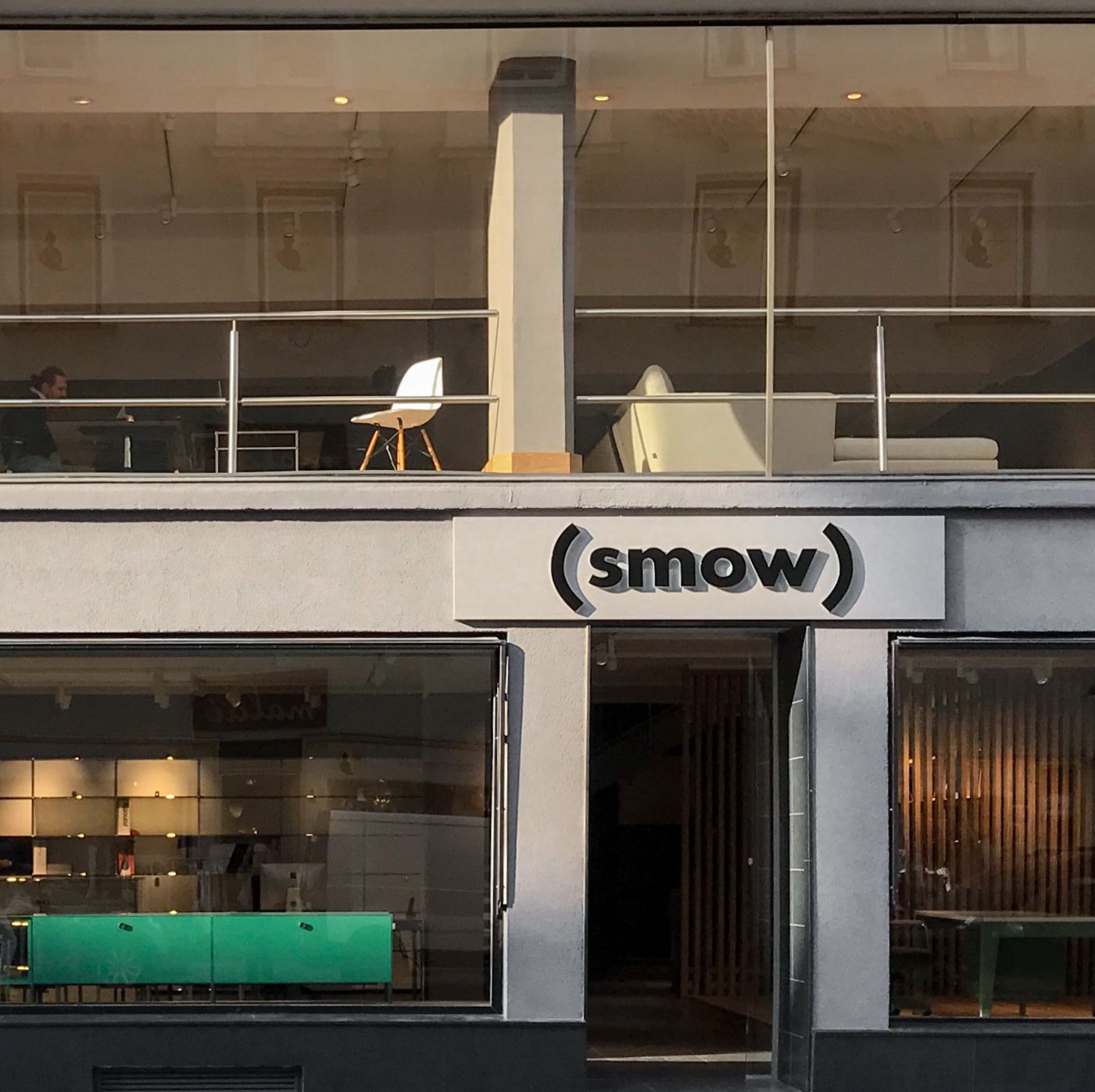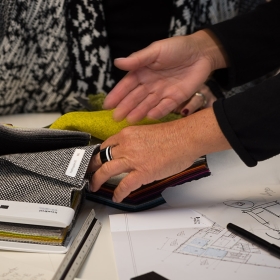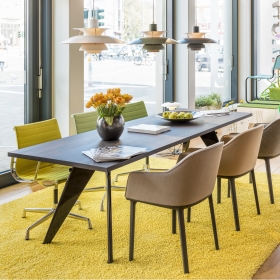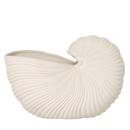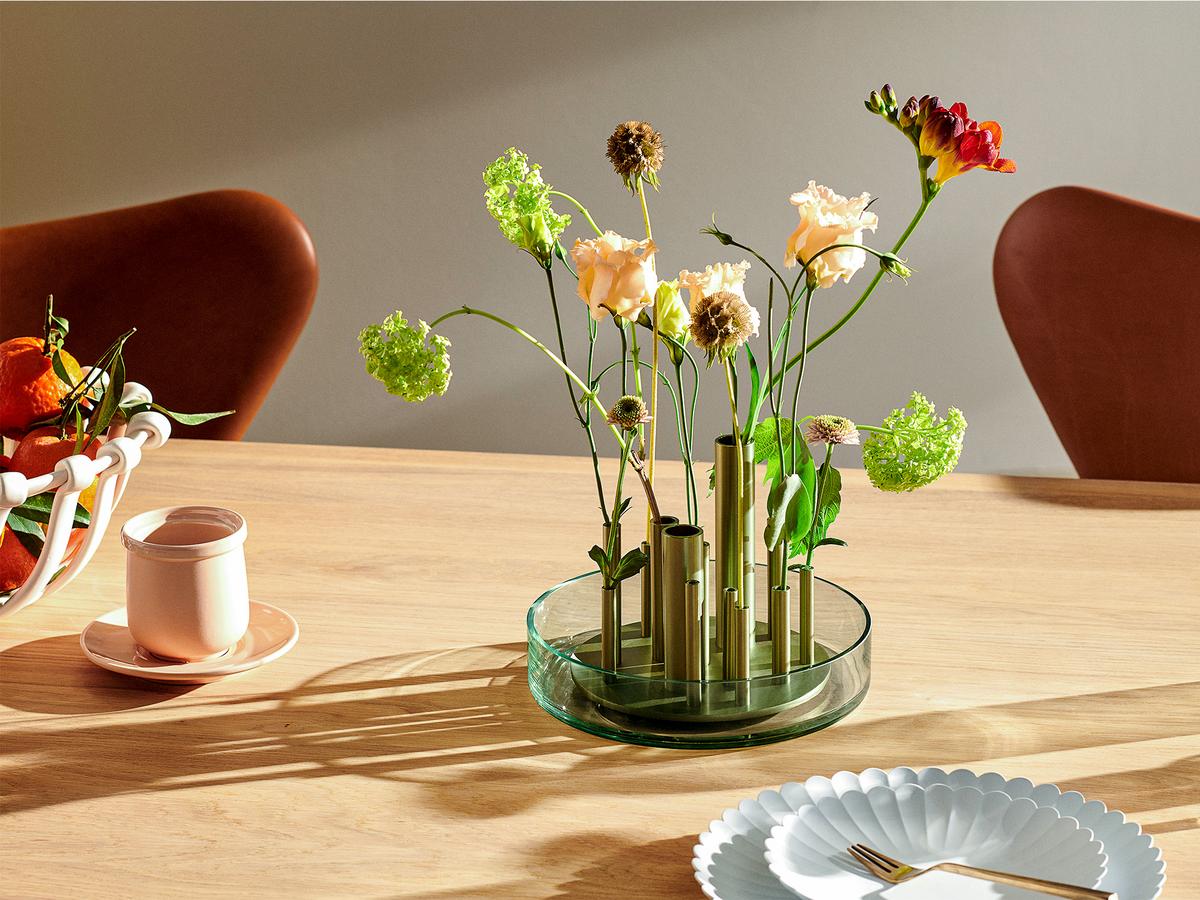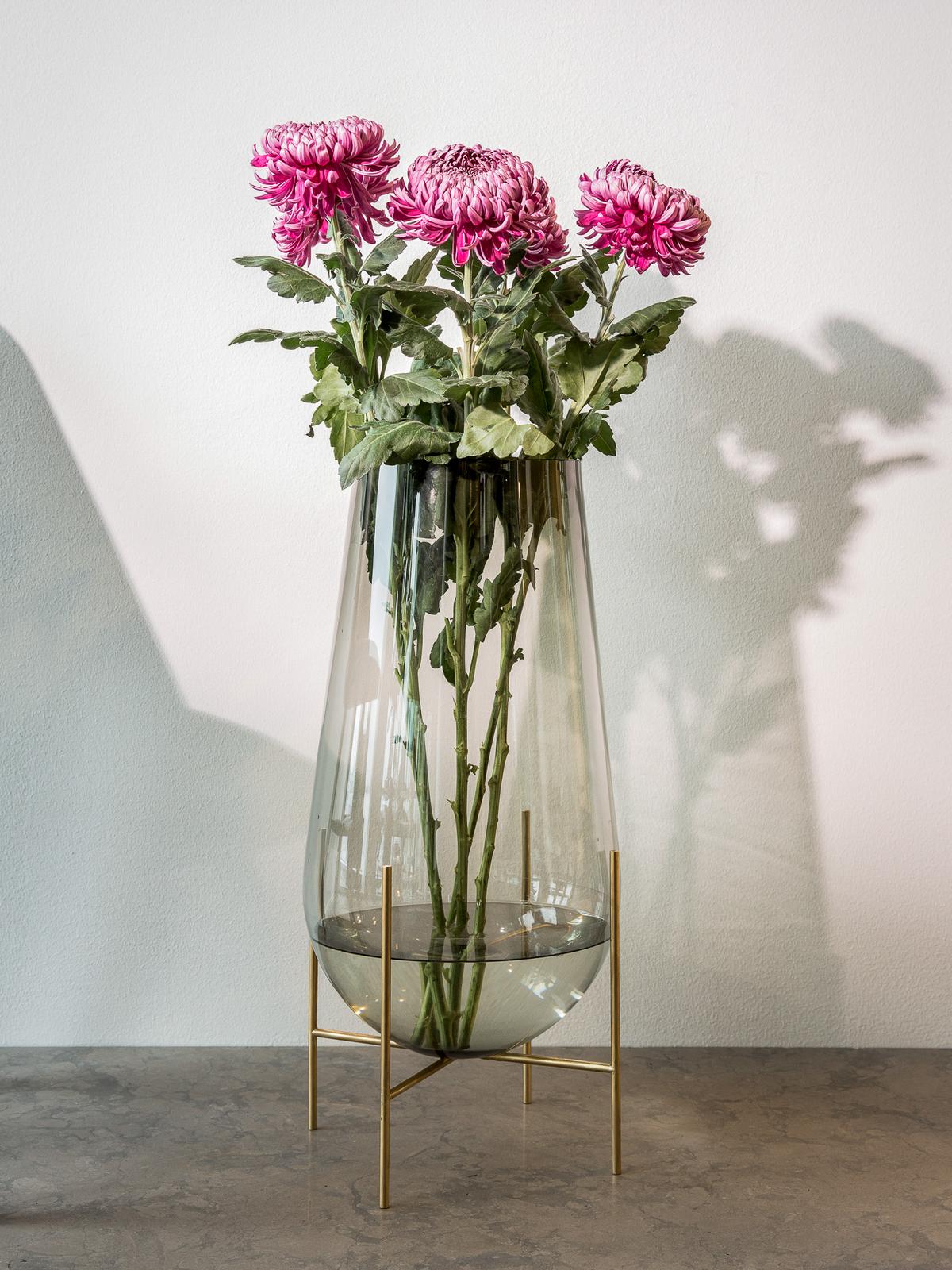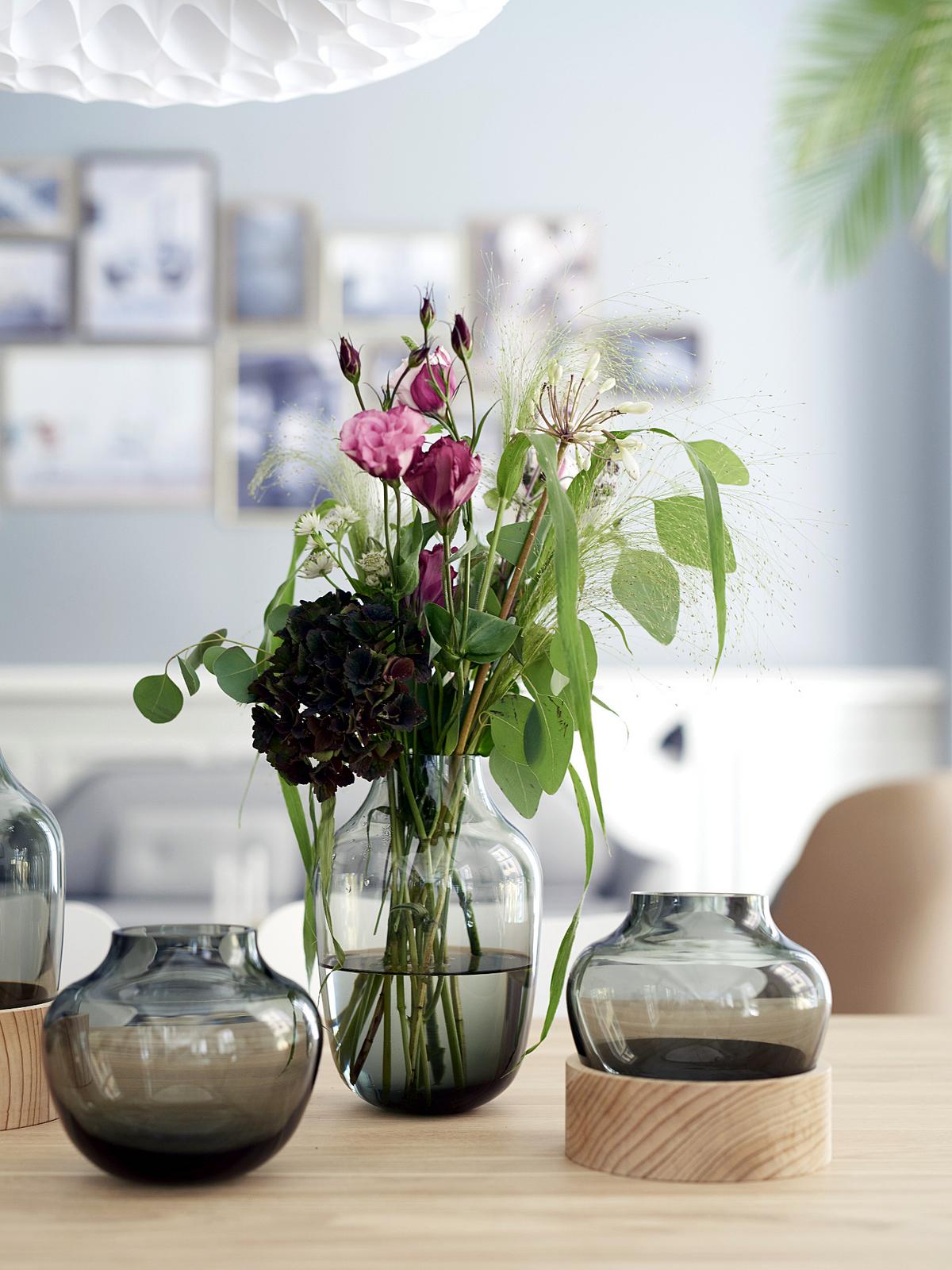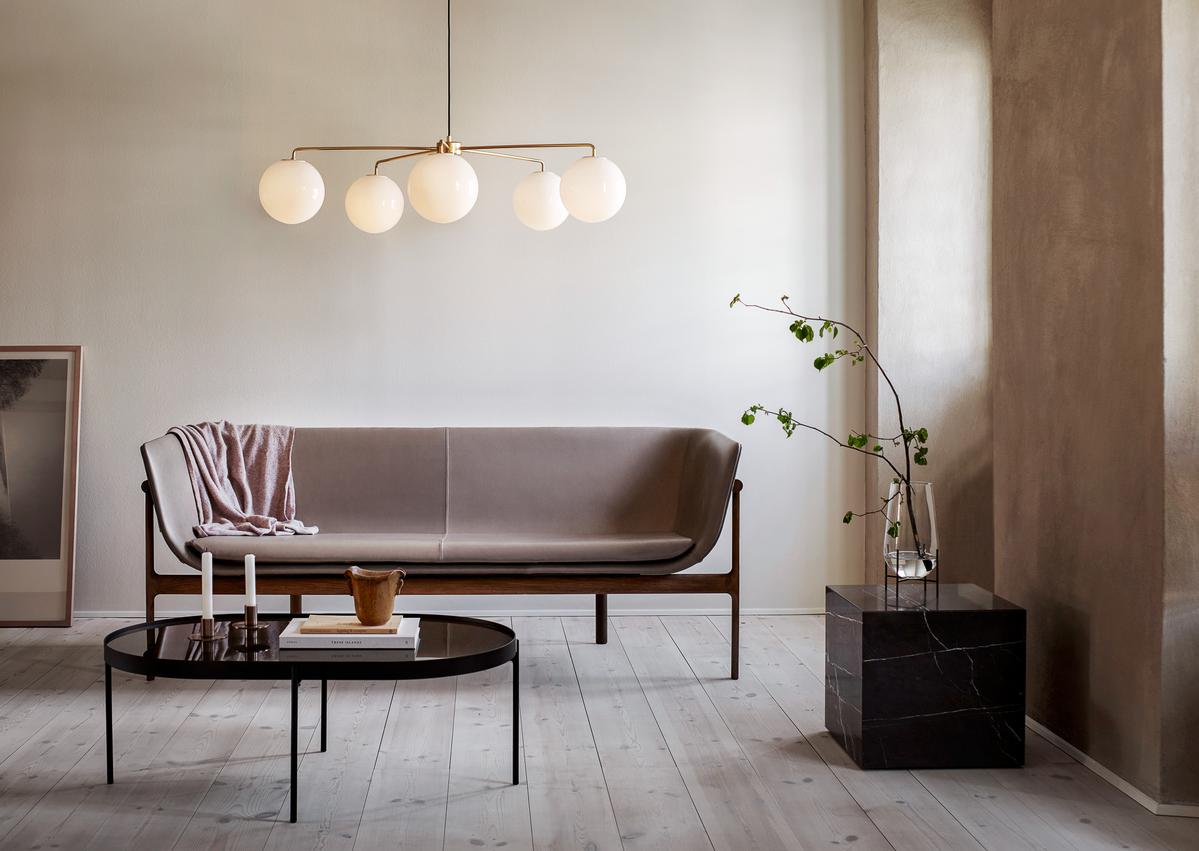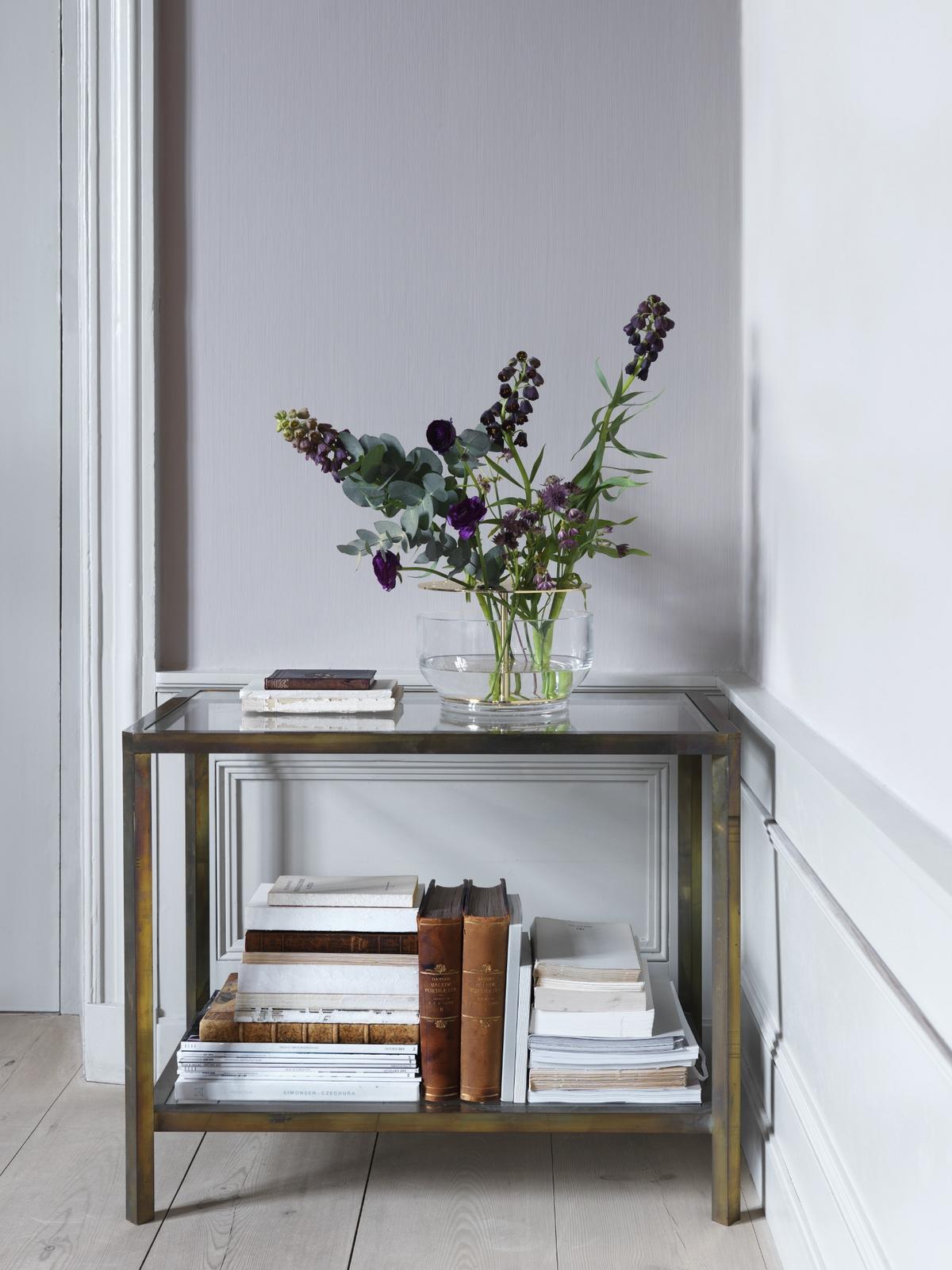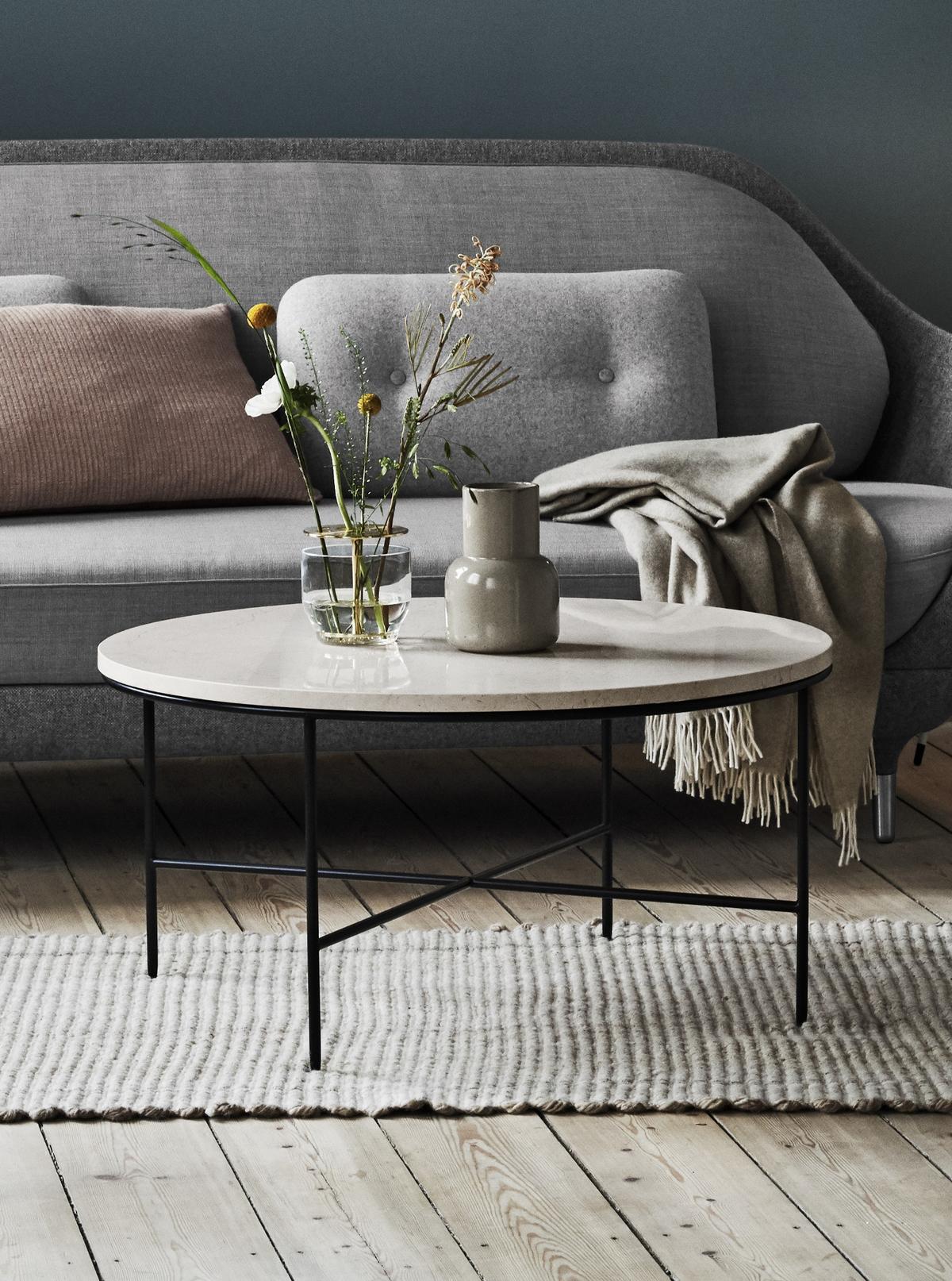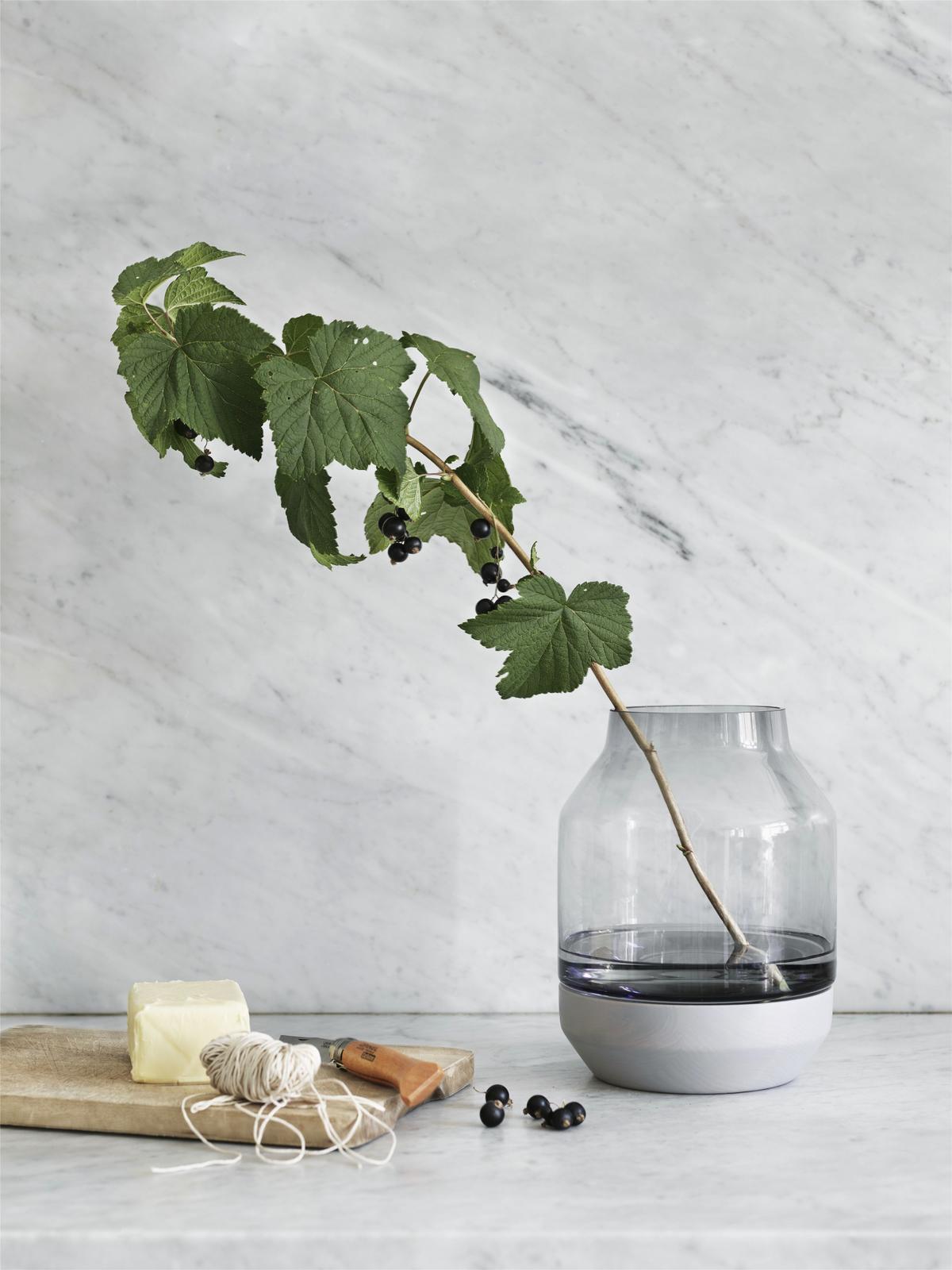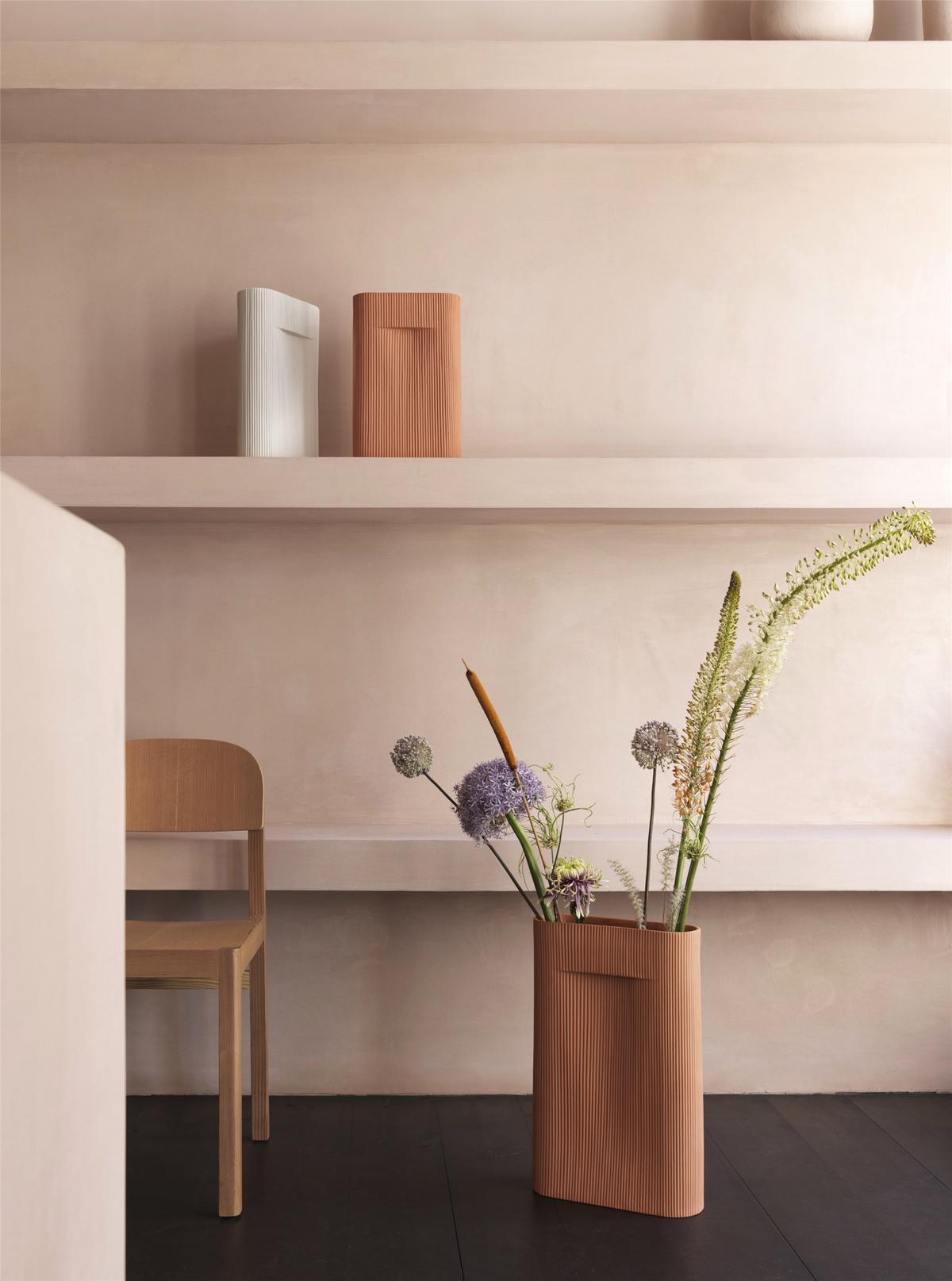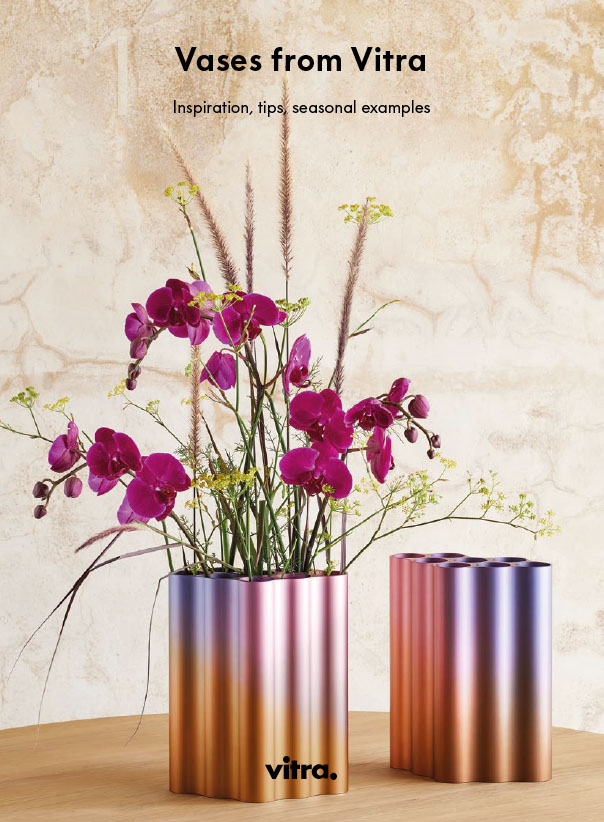Vases
The perfect vase for every furnishing style
A vase should br appropriate for the style of each flower, but also the rest of the interior. Depending on personal preferences and context, one has the choice between, for example, vases rich in shape and colour, playful, from romantic to eccentric, or simple, minimalist and functional. Some models, especially large floor vases, develop a sculptural quality in the room and become an absolute eye-catcher even without flowers. It is best to choose your vase so that it contrasts with the rest of the furnishings: if you have a rather colourful, warm and playful interior, you might be best advised with a simple, minimalist vase; whereas elaborate vases in bright colours or tinted glass contrast best with a minimalist, modern environment.
Which material is most appropriate?
Vases are available in various styles and, above all, in very different materials. Here it is primarily a question of personal taste, but depending on the material there are also some practical differences. The classics include vessels made of glass or crystal glass in various shapes and designs. Transparent glass vases always look classy and timeless and focus fully on the flowers, which acn come into their own. Ceramic or porcelain flower vases hide the not always attractive flower stems and, unlike glass vases, you cannot immediately see when they were last cleaned. Vases made of porcelain, in former times not called "white gold" for nothing, look particularly classic and noble. The thinner the porcelain, the more delicate the vase. A little more robust and warmer in appearance are ceramic vases, which are available in very different colours and styles. Metal is also often used in vase designs. The factual material proves to be particularly robust here and also often creates an exciting contrast with the lively bloom.
Which vase shapes and sizes are best for which flowers?
Round flowers
Flowers with round heads, such as peonies or hydrangeas, generally require a lot of water and should therefore be arranged in decorative, bulbous vases that have a large capacity. The round, bulbous shape of the vases also harmonizes ideally with the flower shape.
Flowers with long stem
Bouquets of tulips or lilies with long stems are best arranged in elongated vases. A slightly narrower opening ensures that the flowers heads do not fall too far away from one anther. However, the opening should not be too small, otherwise your flower arrangement can quickly become stuck rather than loosely and elegantly.
Lush bouquets
A large, self-picked summer bouquet with grasses, sunflowers or daisies needs space. Lush bouquets are therefore best stored in large, cylindrical vases that hold a lot of water.
Single flowers
Individually arranged flowers are also a feast for the eyes and come into their own in vases in which several individual flowers can be arranged. Such models are also absolutely trendy. Individual flowers such as roses, lilies or ranunculus can otherwise also be arranged in a classic way in particularly narrow bottle vases.
Long-stemmed flowers and branches
Floor vases are best suited for particularly long-stemmed flowers and branches. Floor vases are particularly sculptural in the room. In an elegant vase, a single branch can become an absolute eye-catcher.
Five tips for arranging flowers and using vases
As far as the choice of flowers is concerned, you should keep everything in context of the interior: The best advice always being is to trust your taste and intuition and limit yourself in your colour concept to a maximum of three colours or a maximum of three types of flowers. The flowers should have enough space in the vase and be arranged airily and loosely without falling too distantly from one another. If you place the stems diagonally across from each other, the flowers fall loosely but do not lose their grip. The vase should never measure more than two thirds of the flower stem. Several vases, each with small bouquets, can be combined particularly well - it is best to always select an odd number of vases here. Each type of flower requires different amounts of water and prefers different water temperatures.. The water should be replaced every/every other day. Most vases can be easily cleaned with detergent and a cloth, and many can also be cleaned in the dishwasher. Stubborn lime deposits are best removed with vinegar and lemon juice.
Which vase-flower combination for greenery, dried flowers, gnarled twigs, colourful bouquets or individual flowers? With the aid of our illustrated vases PDF become your own florist with a keen eye for the perfect combination for any vase arrangement. In addition our decorating tips show how vases - more than just simple flower holders - can become sculptural objects. Attractive, even if the flower has already faded.
For the sculptural look, we particularly recommend the Découpage vases from Vitra: a cylindrical vessel with a set of naively shaped clay plates and rods, apparently, freely attached.
The following types of flowers fit well in a Découpage vase and instructions of their optimal arrangement can be downloaded in our free PDF guide PDF as pictured How-to:
► Unmixed bouquets
► Tone in tone
► Contrasting flower vs. vase colour with floral bouquet
► Expressive flowers as a solitaire object
► Green arrangements
Whether tulips, twigs, asparagus or finger ferns, in winter with corkscrew willow and orchids and in summer with a solitary Strelitzia with leaves - we show how the same Découpage vases can be enlivened in spring, winter, summer or all year round.
And as alternative sto thethe Découpage vases our handy guide also explains how the Vitra vases Herringbone Vessels, Nuage and Nuage Céramique can be decorated and arranged with suitable assortments of flowers.


